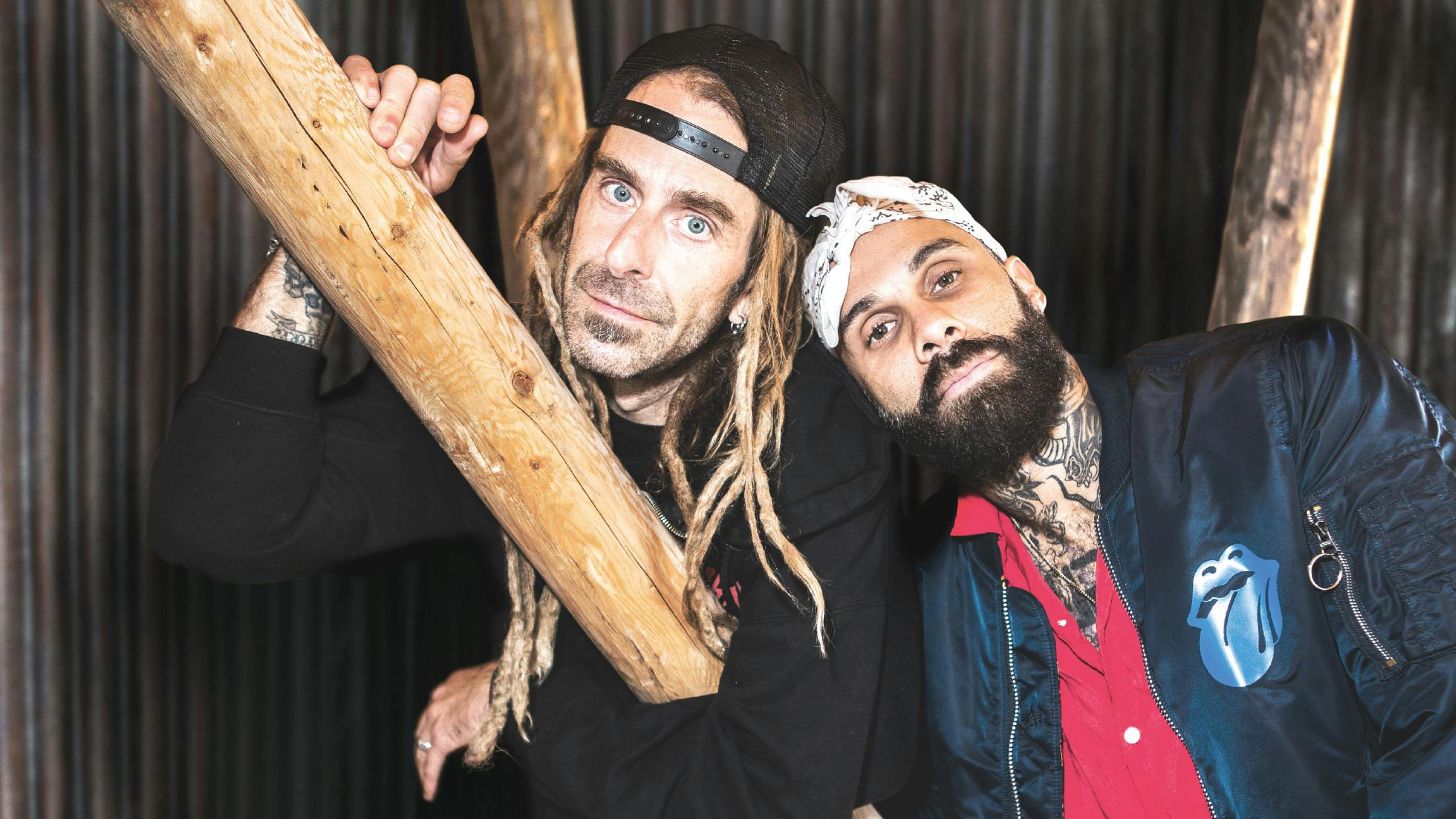Do each of your bands strive for similar, liberally-minded goals?
Randy: “I would definitely call myself politically more liberal, but I also have some conservative tendencies. I don’t like to be shoved into a box, especially if you look at the U.S. right now, everything is so divisive, it’s almost like sports.”
Jason: “That’s exactly what it is.”
Randy: “As I get older, more and more I see that liberal and conservative are both sides of the same coin. The American political system is not representative of the masses, that’s why you have the Electoral College, which was set up by the founding fathers, saying they don’t trust the commoners to make the right decision. There’s problems with every political system, but right now where we live is pretty fucked up.”
You also each have Scottish heritage, right?
Randy: “On my father’s side there’s some Scottish. I love Scotland, I have friends in Larkhall, outside Glasgow. Every time I have a day off I immediately jet to the Highlands.”
Jason: “My uncle lives in Inverness, and my mom’s whole side of the family is over there. She just moved from Glasgow to live in Los Angeles, though.”
Randy: “Your mom is straight-up Scot?”
Jason: “Oh yeah, my mom’s from Sighthill.”
Randy: “You’re a Weegie?”
Jason: “Hell yeah, bro!”
READ THIS: The 13 most underrated albums of the '00s
Where do you draw the line between preaching and getting your message across?
Jason: “I think about that all the time. We were in Italy recently, in a stronghold for people who were opposing the occupation during World War II, and I wanted to talk about it because I felt that energy, but I can’t tell other people what to do with their systems or their government because I don’t live it.”
Randy: “I think that’s a huge thing about us as humans, as a global community. As Jason’s saying, he doesn’t live in it so it’s not his place to tell people what to do, but what’s important for understanding on a global level is that we have to talk to each other; to have honest, open conversations, to not get butt-hurt when someone says something we don’t agree with – to have some empathy with people.”
Jason: “That’s why he’s my guy. What I try to encourage is empathy. When I’m onstage, I’m not there to push my agenda, because my agenda can be very radical and not easily implemented in a larger population. A lot of my ideas are for myself – my dietary choices, or what I choose to consume – but what Randy’s saying is the answer. When I was younger I used to identify my sadness with anger, so I would get into fights, hang out with my gangbanging friends, go to shows and fucking destroy things. Now I’m an adult and I have an emotional discourse with myself, I think that open, honest conversations are uncomfortable, but they yield a better result than pulling punches.”
Randy: “You don’t have to be abrasive when speaking your truth, you can have a little social grace, but it’s important to be open and honest. For this to happen it needs to start on an individual level. If you’re feeling helpless and stuck in a place where nobody understands you, you can reach out to someone who does. One on one is where change starts. When I saw FEVER 333 for the first time, the thing I appreciated the most was Jason saying, ‘We’re not asking you to agree with what we say, or to believe what we believe, but thank you for giving us this space to express ourselves.’ Being dogmatic, no matter where you’re from, turns people off.”
